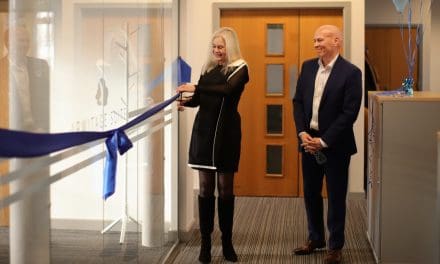By Anne McCoubrey, tax manager at Walker & Sutcliffe chartered accountants
Changes to the legislation around tax compliance is nothing new, however Making Tax Digital (MTD), which was initially rolled out to businesses with sales above the VAT threshold of £85k, will be mandated for many sole traders and landlords by April 2026.
While this may seem like it’s some way off, here at Huddersfield-based chartered accountancy practice, Walker & Sutcliffe, we are encouraging businesses to make the changes now in preparation for the future. In doing this, it says companies will have the time to put into practice what will become a legal requirement.
The update is part of the Government’s 10-year strategy to improve the tax system through removing manual processing and migrating all businesses to digital filing. The results should be to reduce errors and retain all records digitally.
It will also support HMRC’s objective to become “one of the most digitally advanced tax administrations in the world.”
For now, from April 2026, all self-employed individuals and landlords with an income of more than £50k will be required to keep digital records and provide quarterly updates on their income and expenditure to HMRC through MTD compatible software.
Those with an income of between £30k and up to £50k will need to do this from April 2027 and the details for businesses with a turnover below £30k are still being reviewed.
In practice, this means that businesses will have to invest in, or gain access to, compatible software that will connect directly with HMRC. In addition, many will require upskilling to evolve their accounting practices from manual to digital.
Evidence from research and analysis by Yonder, independent analysts for HMRC, has found that 28% of respondents incorrectly considered their business ineligible; just over half (51%) were aware of what MTD meant; 20% confirmed they will continue to rely on paper; and 46% could not see any benefits to the change to the system.
While the findings may make for worrying reading, this will not reverse the fact that changes have been made and more are to come.
For example, in addition to all VAT registered businesses having to comply by April 2022, from April 2026, MTD will be a requirement for many Income Tax for Self-Employed Business Owners and Landlords.
This will mean that from the year-ended April 5 2026, rather than one self-assessment tax return to be filed for January 2027, all eligible businesses will be required to submit four returns and an annual end of period statement.
As a chartered accountancy practice, despite the changes seeming some time away, Walker & Sutcliffe believes the most sensible solution for businesses and landlords is to implement the necessary software or access the help and advice required as soon as possible.
Rather than making tax difficult, business owners and landlords can follow four simple steps:
- Advice
Access advice on the new system and how it will work. Identifying the right software and ensuring that it is compatible and compliant is essential. The initial outlay may be a challenge for some business owners, however once it is in place, any further costs should be negligible. Furthermore, given the extension to the mandate, this investment can now be spread across two years to make it more manageable.
- Training
Getting the right expert training to ensure that you are filing and saving digital documents correctly will avoid potential penalties. Trialing this in the run up to the changes will also ensure the business is ready when MTD is enforced. What’s more, embracing the changes should remove the need for paper-based documentation altogether. It will not require that both are needed.
- Talk to the experts
Relying on a chartered accountant will save time, money and worry. Still, the need to better understand the process is not without its merits, particularly as the details change along the process. In all instances, we advise our clients to ask any questions, even when they will not be completing the filing or saving the digital documents.
- Access data and expertise
Once the systems are in place, use the data and expertise of a chartered accountancy practice to support your business and drive your organisation to meet with objectives and become the best it can be.
Like most updates from HMRC, there will be changes along the way, and keeping up to date with all requirements is key. The main point being that making the necessary changes now will only support the transition when it becomes mandatory.
Walker & Sutcliffe is a firm of chartered accountants in Huddersfield working with a national portfolio of clients. For further information about the practice, please visit: https://www.walker-sutcliffe.co.uk/




















